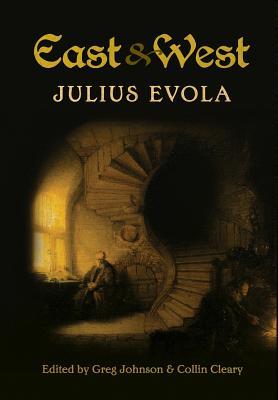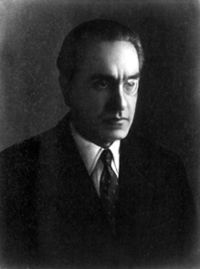
East & West collects eighteen essays and reviews in East-West comparative philosophy and religion written by Julius Evola for the journal East & West. Evola covers an astonishing array of traditions, including Hinduism, Buddhism, Zen, Tantrism, Yoga, Vedanta, Taoism, Stoicism, and Existentialism; such thinkers as René Guénon, Ernst Jünger, Mircea Eliade, Sri Aurobindo, Meister Eckhart, F. W. J. Schelling, Martin Heidegger, Carl Jaspers, and C. G. Jung; and such topics as suicide, psychology, sexual magic, and the Egyptian and Tibetan Books of the Dead. Evola’s goal is not simply to identify superficial doctrinal parallels between Eastern and Western traditions, but to use these comparisons to uncover their common root, the one Tradition that underlies the many traditions, which is the central focus of his work. About the Author Julius Evola, 1898–1974, was an Italian philosopher and esotericist who became one of the major exponents of the Traditionalist school of René Guénon and an enduring influence on the New Right. His books include Revolt Against the Modern World (1934), Heathen Imperialism (1928), The Hermetic Tradition (1931), The Mystery of the Grail (1937), The Doctrine of Awakening (1943), The Yoga of Power (1949), Men Among the Ruins: Post-War Reflections of a Radical Traditionalist (1953), The Metaphysics of Sex (1958), and Ride the Tiger (1961). About the Editors Greg Johnson, Ph.D. is the author of Confessions of a Reluctant Hater (Counter-Currents, 2010; second ed., 2016), New Right vs. Old Right (Counter-Currents, 2013), Truth, Justice, & a Nice White Country (Counter-Currents, 2015), and In Defense of Prejudice (Counter-Currents, 2017). Collin Cleary, Ph.D. is the author of Summoning the Gods: Essays on Paganism in a God-Forsaken World (Counter-Currents, 2011) and What is a Rune? & Other Essays (Counter-Currents, 2015).
Author

Julius Evola (19 May 1898 – 11 June 1974), born Giulio Cesare Andrea Evola, was an Italian philosopher and esoteric scholar. Born in Rome to a family of the Sicilian landed gentry, Evola was raised a strict Catholic. Despite this, his life was characterised by 'an anti-bourgeois approach' hostile to both 'the dominant tradition of the West—Christianity and Catholicism—and to contemporary civilization—the 'modern world' of democracy and materialism'. By turns 'engineering student, artillery officer, Dadaist poet and painter, journalist, alpinist, scholar, linguist, Orientalist, and political commentator', he has been described as a 'rare example of universality in an age of specialization'. Yet behind it all lay a singular emphasis on, and pursuit of, a 'direct relationship to the Absolute'. For Evola, 'the center of all things was not man, but rather the Transcendent.' This metaphysical conviction can be seen to have determined both Evola's stance on socio-political issues, and his antipathetic attitude towards 'all professional, sentimental and family routines'. The author of many books on esoteric, political and religious topics (including The Hermetic Tradition, The Doctrine of Awakening and Eros and the Mysteries of Love), his best-known work remains Revolt Against the Modern World, a trenchant critique of modern civilisation that has been described as 'the gateway to his thought'. Since his death, also in Rome, his writings have influenced right-wing, reactionary and conservative political thought not only in his native Italy, but throughout continental Europe and, increasingly, the English-speaking world. Nevertheless, he should not be considered primarily as a political thinker, but rather as an exponent of the wider Traditionalist School that encompasses the work of such individuals as René Guénon, Titus Burckhardt and Frithjof Schuon.